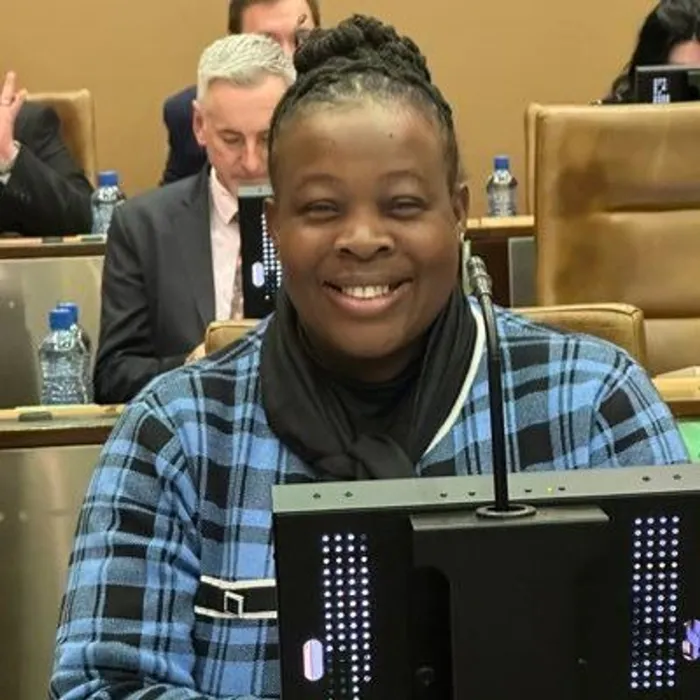The ANC’s secrecy: a threat to good governance in Gauteng

Refiloe Nt’sekhe
The importance of transparency and accountability in a democratic society cannot be overstated. A cornerstone of any democracy is the right of elected officials, particularly members of Parliament (MPs), to access accurate and timely information to perform their oversight role effectively.
Yet, when Members of the Gauteng Provincial Legislature (GPL) are left in the dark and forced to rely on whistleblowers to expose hidden information, it reveals a disturbing trend that threatens the integrity of governance.
This is evident in the ANC-led government’s failure to disclose the damning reports from BDO and Bowman’s when they were made available in 2020.
These reports contain critical information about governance failures, including misconduct of staff members in the Gauteng Department of Social Development (GDSD), irregular expenditures, interference by staff in NPO appointments, interference in supplier appointments, and possible criminal acts by the staff.
All this information was deliberately withheld from the legislature and its oversight committees. The failure to table these reports and make them public raises serious concerns.
Protecting individuals responsible for governance failures in the GDSD also raises serious questions about accountability within the government. Reports containing critical information about staff misconduct, irregular expenditure, and undue interference in key appointments were intentionally withheld from the Legislature and its oversight committees.
Despite clear recommendations from these reports, political principals failed to act, allowing those involved in misconduct to escape accountability. Among the recommendations was to refer the department’s HOD to the NPA for criminal charges, which was not done.
The deliberate withholding of these reports suggests a clear intention to avoid scrutiny. What are the political leaders hiding, and why are they protecting those responsible for these transgressions? All Gauteng premiers who have led the government and failed to act on these serious reports are accountable. They are the former premier David Makhura and the current premier Panyaza Lesufi.
In addition, the refusal to act on the findings of the two reports is telling and suggests that political leaders prioritise protecting individuals over ensuring good governance. Secondly, the withholding of these reports from oversight committees is a violation of the principles of transparency.
Ultimately, the inaction on these reports underscores a disturbing trend within the GDSD and beyond where misconduct is tolerated, and accountability is sacrificed for political expediency.
This not only damages public trust but also undermines the principles of democracy and good governance. Political leaders must take responsibility, implement recommendations, and ensure accountability for those who have engaged in misconduct.
More concerning, the government has repeatedly failed to respond adequately to parliamentary questions. Written or oral questions are an essential tool for MPLs to seek clarity on policy, government expenditure, and performance.
However, when responses are delayed, insufficient, or ignored, it becomes clear that the government is evading accountability. On this note, the refusal to disclose the BDO and Bowman’s reports is part of a broader pattern of obfuscation and secrecy.
The unwillingness of the ANC-led government to provide information to oversight committees further demonstrates its disregard for transparency. Oversight committees ensure that government actions adhere to the principles of good governance and safeguard the public interest. When the ANC government fails to engage openly and honestly with these committees, it undermines Parliament’s ability to perform oversight and betrays the trust of our people.
This lack of transparency creates a growing trust deficit, first between the government and the MPLs representing the people’s interests and second between the government and the citizens who have entrusted the ANC with their votes.
Legislative oversight plays a crucial role in ensuring that the executive is accountable. When this role is compromised, it erodes people’s faith in democracy.
In democratic societies such as ours, withholding critical reports suggests the existence of more troubling issues within government operations. It also suggests the existence of more troubling issues within government operations. Premier Lesufi and his predecessor might have been working hard to keep these issues under wraps.
However, transparency is a key pillar of good governance, and the refusal to engage in open, honest disclosure fuels apprehensions regarding corruption, mismanagement, and cover-ups.
The behaviour of the ANC government, including its reluctance to provide complete answers to questions posed at the legislature, failure to disclose critical reports, and resistance to oversight, demonstrates a profound disregard for accountability.
These actions not only undermine the integrity of the legislature but also betray the trust of citizens who count on the elected government to act openly and transparently.
The ANC’s lack of transparency indicates that it is unlikely to reform and lead a trustworthy and competent government.
Gauteng residents deserve a DA government that values openness, accountability, and good governance, not one that hides behind secrecy and evasion.
Refiloe Nt’sekhe MPL, DA Gauteng Shadow MEC for Social Development.
The Star
Related Topics: